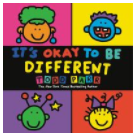|
Having trouble viewing this email? View it as a Web page.
|
|
|
|
|
Social Emotional Learning
 5 Things to Know or Do 5 Things to Know or Do
-
Social and Emotional Learning (SEL) is the process through which children and adults understand and manage emotions, set and achieve positive goals, feel and show empathy for others, establish and maintain positive relationships, and make responsible decisions.
- Social and Emotional Learning focuses on five main areas. Self awareness is how we recognize and understand feelings. Self-management is how we manage our emotions, thoughts, and behaviors in a safe and healthy way. Social awareness is how we see and understand from another person’s point of view. Relationship skills include communicating, listening, and cooperating to develop and keep healthy relationships. Responsible-decision making means setting goals, making choices, and thinking about past experiences.
- Research shows that Social and Emotional Learning has a powerful impact. It can increase academic performance and decrease bullying. It can also improve relationships between children and adults.
-
Social Emotional Learning (SEL) occurs at all stages of life and includes the skills needed to learn and grow. SEL is the process of developing the necessary skills to accept and talk about feelings, no matter how big or small they are. It includes strategies to help people with emotional regulation and developing an awareness of others. Through the development of these skills, relationships develop and grow, and people are more ready to learn new skills.
-
Support Social and Emotional Learning by establishing routines, following a schedule, and using pictures for transitions. The things we say to each other also support SEL. It’s important to notice, acknowledge, reinforce and practice what you see and feel. For example, make a mad face and say “when I am angry, my face gets hot.”
 4 Children Read Alouds 4 Children Read Alouds
-
 It’s Okay To Be Different It’s Okay To Be Different by Todd Parr ( Fairfax Library). It's Okay to be Different, is a book that helps young children understand that there are no two people exactly alike and that it is okay to be who you are.
-
 Have You Filled a Bucket Today? Have You Filled a Bucket Today? by Carol McCloud ( Fairfax Library). Have You Filled a Bucket Today? encourages positive behavior as children see how very easy and rewarding it is to express kindness, appreciation, and love on a daily basis.
-
 Be Kind Be Kind by Pat Zietlow Miller ( Fairfax Library). Be Kind This story explores what a child can do to be kind, and how each act, big or small, can make a difference or at least help a friend.
-
 When Sophie Gets Angry--Really, Really Angry... When Sophie Gets Angry--Really, Really Angry... by Molly Bang ( Fairfax Library). Sophie is upset and doesn't know how to manage her anger but takes the time to cool off and make a good choice.
 3 Links to Visit 3 Links to Visit
- Collaborative for Academic, Social, and Emotional Learning (CASEL)
- Conscious Discipline
- Second Step
 2 Videos to View 2 Videos to View
- What and Why Social-Emotional Learning? Social-Emotional Skills in School
- Conscious Discipline: Building Emotional Literacy and SEL Skills in Preschool
 1 Point to Access Research 1 Point to Access Research
-
Committee For Children: Making the Case for SEL
|
|
|
|